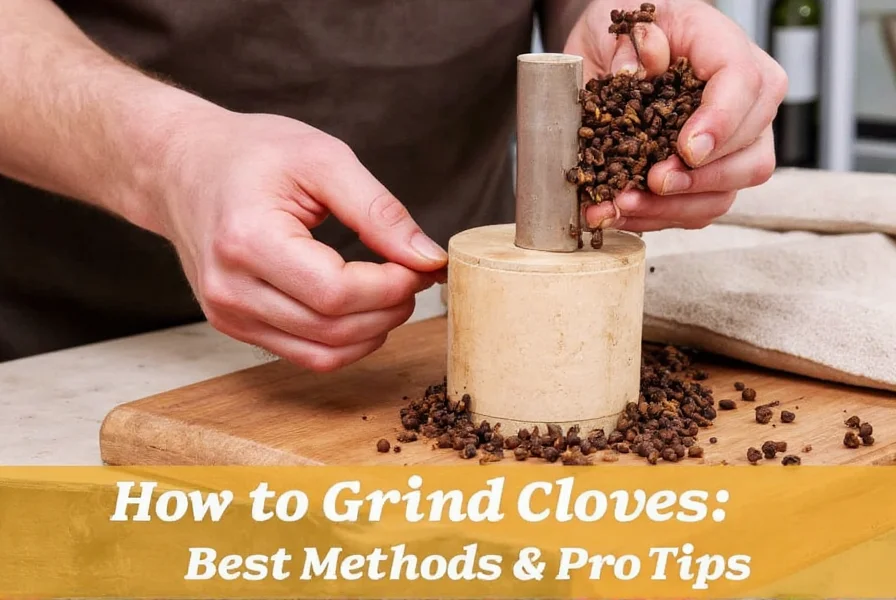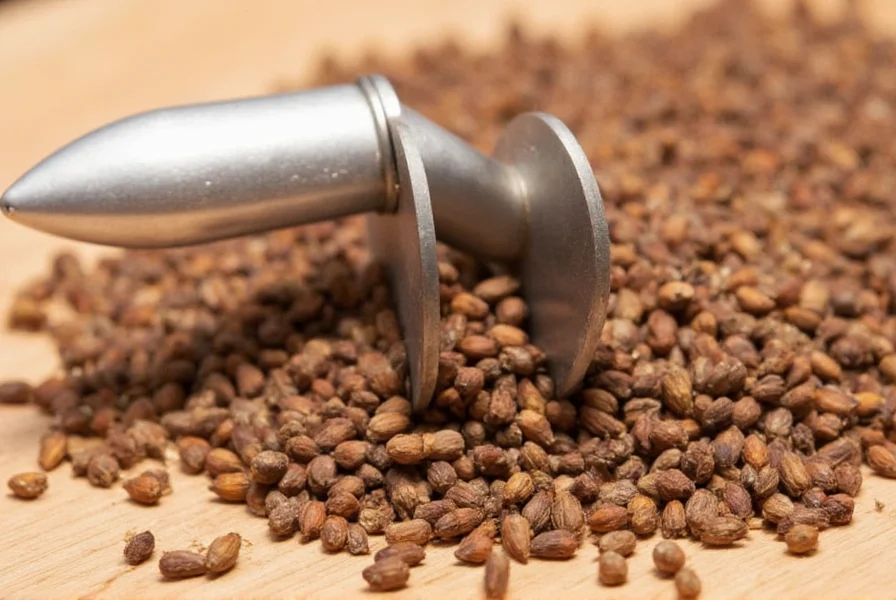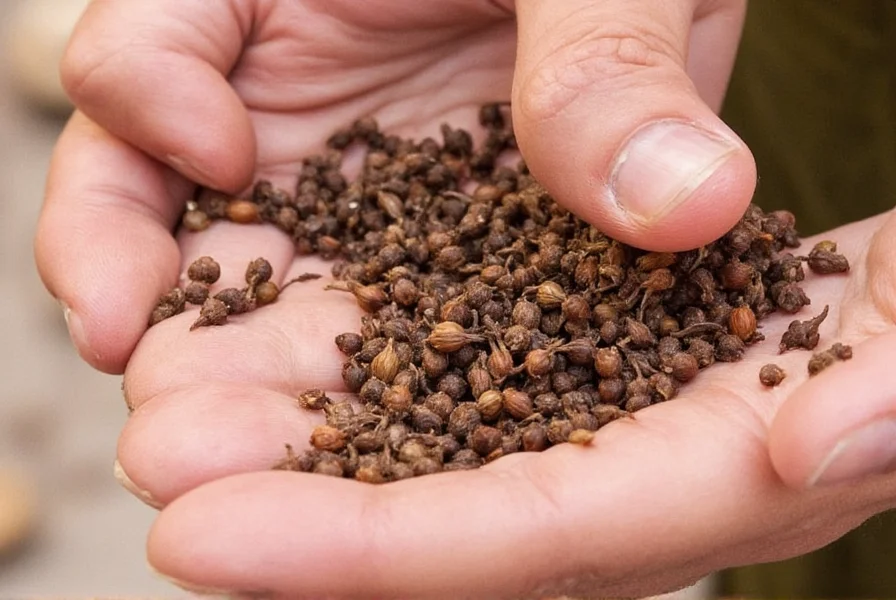Grinding cloves properly transforms your cooking by releasing their intense aromatic oils. Unlike pre-ground versions that lose potency within weeks, freshly ground cloves deliver maximum flavor and health benefits in your recipes. This guide covers professional techniques used by chefs to achieve perfect consistency every time.
Why Freshly Ground Cloves Outperform Pre-Ground
Eugenol, the essential oil comprising 70-90% of clove's composition, begins degrading immediately after grinding. Studies show pre-ground cloves lose 50% of their volatile compounds within one month at room temperature. Whole cloves maintain potency for up to two years when stored properly. When you're grinding whole cloves for baking, the difference in flavor intensity is particularly noticeable in delicate recipes like gingerbread or mulled wine.
Best Tools for Grinding Cloves
Choosing the right equipment affects both texture and flavor preservation. Here's how common tools compare:
| Tool | Best For | Texture Result | Precautions |
|---|---|---|---|
| Dedicated spice grinder | Regular use, multiple spices | Consistent fine powder | Requires thorough cleaning between spices |
| Mortar and pestle | Small batches, traditional method | Slightly coarse but aromatic | Requires physical effort for fine grind |
| Coffee grinder (dedicated) | Occasional use, budget option | Very fine powder | Never use for coffee afterward |
| Blender | Large quantities only | Inconsistent, often oily | High risk of overheating spices |
Step-by-Step Grinding Methods
Using a Spice Grinder (Recommended Method)
This is the most efficient approach for how to grind cloves without a mortar and pestle. Add no more than 1 tablespoon of whole cloves to your grinder. Pulse in 5-second intervals with 10-second breaks to prevent motor strain and heat buildup. The ideal temperature for grinding is below 120°F (49°C) - higher temperatures cause essential oils to evaporate. After 30 seconds total grinding time, check consistency. Properly ground cloves should resemble fine sand with no visible chunks.

Mortar and Pestle Technique
For authentic results when you're grinding cloves for Indian recipes or other traditional dishes, use this method: Place cloves in mortar and apply firm downward pressure while twisting the pestle. Start with 10 whole cloves maximum. After initial crushing, add a pinch of uncooked rice which absorbs excess oils and prevents clumping. Continue grinding in circular motions for 2-3 minutes until powder forms. The rice gets ground too but won't affect flavor in cooked dishes.
Coffee Grinder Alternative
If using a coffee grinder specifically for spices, freeze cloves for 15 minutes first. Cold spices grind more evenly and produce less heat. Fill grinder no more than one-third full. Use 3-second bursts totaling 20 seconds maximum. Immediately wipe interior with a paper towel dampened with lemon juice to neutralize oils before they harden.
Pro Tips for Perfect Ground Cloves
Professional chefs follow these practices when grinding whole cloves for baking or savory dishes:
- Quantity control: Never grind more than you'll use within 2 weeks for maximum freshness
- Moisture prevention: Wipe grinder components with vinegar before first use to eliminate moisture
- Heat management: Place spice grinder bowl in freezer for 10 minutes between batches
- Cleaning protocol: Run 1 tablespoon of uncooked rice through grinder after use to absorb oils
- Texture check: Rub between fingers - should feel smooth without gritty particles
Storing Ground Cloves Properly
Even with perfect grinding technique, improper storage ruins your efforts. Transfer ground cloves immediately to an airtight container away from light. Dark glass jars work best. For long-term storage of ground cloves, add a silica gel packet to absorb moisture. Properly stored, ground cloves maintain 80% potency for 6 months. Label containers with grinding date - after 8 months, flavor degrades significantly regardless of storage conditions.
Troubleshooting Common Issues
Problem: Cloves sticking to grinder walls
Solution: Add 1-2 drops of food-grade vegetable oil to cloves before grinding
Problem: Bitter taste in ground cloves
Solution: You've overheated the spices - always use short bursts and allow cooling periods
Problem: Inconsistent texture
Solution: Sift ground cloves through a fine mesh strainer and regrind larger particles

Frequently Asked Questions
Can I grind cloves in a blender?
Yes, but only for large quantities (1/4 cup or more). Pulse in 2-second bursts with 15-second breaks to prevent overheating. Blenders often create uneven texture with some cloves completely pulverized while others remain whole. For best results when grinding cloves without specialized equipment, freeze cloves first and add a tablespoon of uncooked rice to absorb oils.
How fine should ground cloves be for baking?
For most baking applications, ground cloves should pass through a 60-mesh sieve (approximately 250 microns). This fine consistency ensures even distribution in batters and doughs without gritty texture. When grinding cloves for gingerbread cookies or similar recipes, slightly coarser grind (80-mesh) works better as it provides subtle texture contrast.
Why do my ground cloves clump together?
Cloves contain 15-20% essential oils that cause clumping when ground. To prevent this when grinding whole cloves at home, add 1/4 teaspoon of uncooked rice per tablespoon of cloves before grinding. The rice absorbs excess oils without affecting flavor. Alternatively, freeze cloves for 20 minutes before grinding - cold temperatures reduce oil viscosity.
Can I use the same grinder for cloves and other spices?
Only if you thoroughly clean the grinder between uses. Clove oil is particularly potent and transfers flavor easily. For best practices when grinding multiple spices, run uncooked rice through the grinder after each use, followed by a wipe with lemon juice. Many chefs maintain separate grinders for strong spices (cloves, cinnamon, nutmeg) versus milder ones (coriander, cumin).
How can I tell if my ground cloves are fresh?
Freshly ground cloves should have a strong, sweet-spicy aroma detectable from 12 inches away. When rubbed between fingers, they leave a yellowish tint from the essential oils. Stale cloves smell dusty with little aroma and feel dry without oily residue. For testing ground clove freshness, add a pinch to hot water - fresh cloves create an immediate oily sheen on the surface.











 浙公网安备
33010002000092号
浙公网安备
33010002000092号 浙B2-20120091-4
浙B2-20120091-4